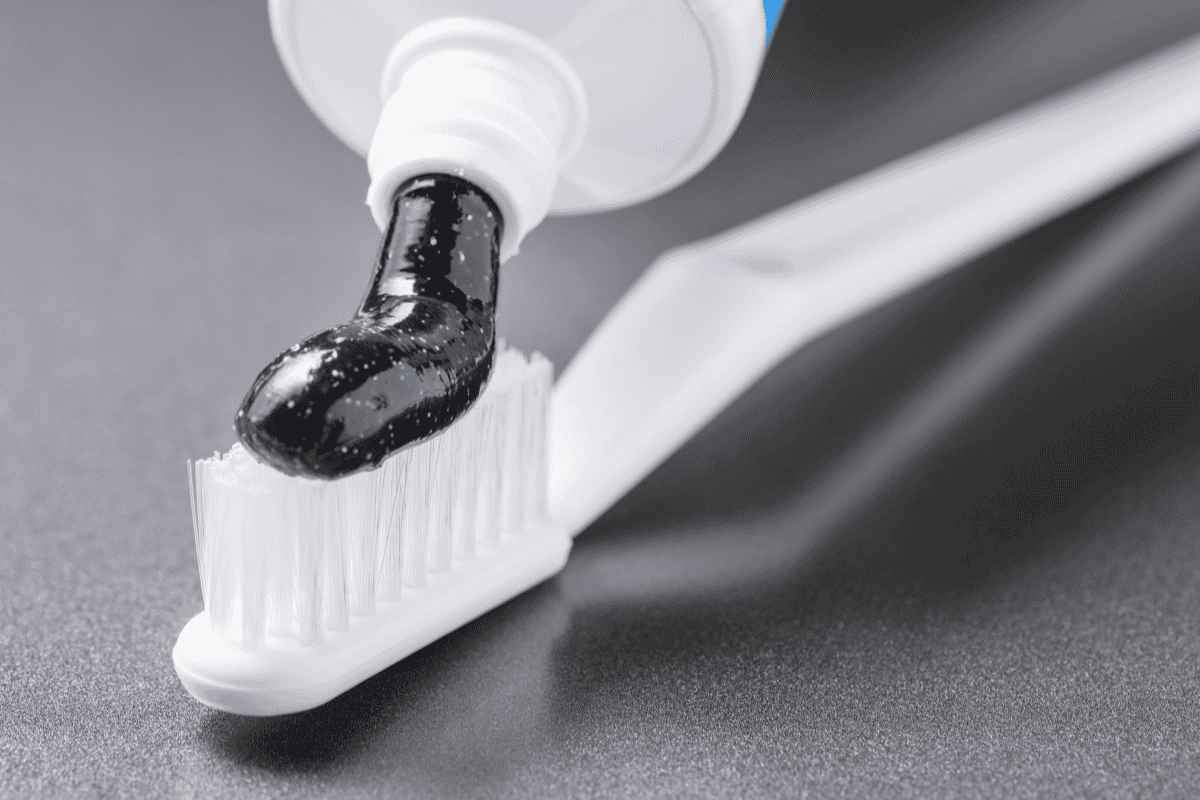
Charcoal toothpaste is increasingly popular, with its promises of stain removal and better oral health. But concerns about its safety and long-term effects on oral health have arisen.It’s important to understand the risks and know how to use it in a way that prevents damage to your enamel and gums.
What is charcoal toothpaste?
Charcoal toothpaste contains activated charcoal. It is a porous substance made from carbon-rich materials like wood or coconut shells. In toothpaste, it’s claimed that it removes surface stains, absorbs bacteria, and whitens teeth. Despite its popularity, studies are still looking at charcoal toothpaste to check on it’s safety and effectiveness.
Benefits of charcoal toothpaste
Charcoal toothpaste is often praised for its natural properties. Many people use it to tackle oral health issues, hoping for a cleaner mouth and a brighter smile. Here are some of the potential benefits that charcoal toothpaste offers:
Whitening
One of the main reasons people use charcoal toothpaste is its whitening effect. Charcoal's abrasive nature helps scrub away surface stains from coffee, tea, and smoking.
Oral health
Charcoal can bind to bacteria and toxins, and fights toxins. This can leave your mouth feeling cleaner and help control bad breath, decay and gum disease.
All-natural
Charcoal toothpaste offers an eco-friendly alternative. It has no chemicals or additives found in regular toothpaste.
The risks of charcoal toothpaste
Charcoal toothpaste may seem a quick fix for a whiter smile. But be aware of the potential risks.
Its rough texture can wear down your tooth enamel. This makes you more prone to sensitivity and cavities. Plus, it may work wonders on surface stains. But, it doesn't do much for deeper, stubborn discolouration.
Charcoal toothpaste can irritate your gums if you're not careful. It may cause redness or soreness, especially if you brush too hard. Also, many charcoal options don't contain fluoride, which is vital for strengthening your enamel and preventing tooth decay.
Also, the fine black particles can make a mess. They can stain your sink, toothbrush, and even your clothes!
It may sound like a good idea. But, there are things to keep in mind before using charcoal toothpaste daily.
Is charcoal toothpaste safe for everyday use?
Charcoal toothpaste is not recommended for everyday use due to its abrasive nature. Frequent use can wear down tooth enamel. This can increase sensitivity and the risk of cavities. Enamel doesn't regenerate, so once it’s damaged, your teeth are more vulnerable to decay and staining.
Charcoal toothpaste can whiten teeth. But it’s best to use it only once or twice a week. Balance it with regular fluoride toothpaste, which helps protect enamel and prevent cavities, ensuring dental health.
Who should avoid charcoal toothpaste?
Charcoal toothpaste may not suit everyone. Its abrasiveness can harm people with sensitive teeth, gum issues, or weak enamel. Using it regularly in such cases could lead to discomfort or further damage.
If you fit any of these categories, see your dentist before using charcoal toothpaste.
What do dentists recommend about charcoal toothpaste?
Before adding charcoal toothpaste to your routine, consult your local dentist. Occasional use may benefit some. Your dentist can assess your teeth and decide if it's safe for you. They may also recommend alternative treatments for whitening or enamel protection.
The verdict on charcoal toothpaste
Charcoal toothpaste can be tempting for a brighter smile. But consider the risks and benefits before making it a regular part of your routine. Your oral health is unique, and what works for one person may not be the best choice for another.
If you're unsure about charcoal toothpaste, we can help. We can also give you tips for a healthy, beautiful smile. Book your appointment now with your nearest local dental clinic. Our expert dental team will help you find the best oral care plan.
Go Back

















